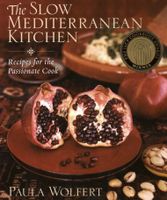Advertisement
Preparation info
- Serves
4
- Difficulty
Medium
Appears in
Published 2003
In summer, southern Italians feast on eggplant. Early in the season, they have the large and small black-skinned varieties, which they sauté, braise, bake, fry stuff, and gratinée. In August, when the smaller, lavender-colored Tunisian variety, rosa bianca, comes into the market, it's time for mulanciane muttunate—literally “small eggplants that have been massaged”— rolled on the counter until their interiors are softened. They are stuffed with cheese, garlic, and herbs insert


